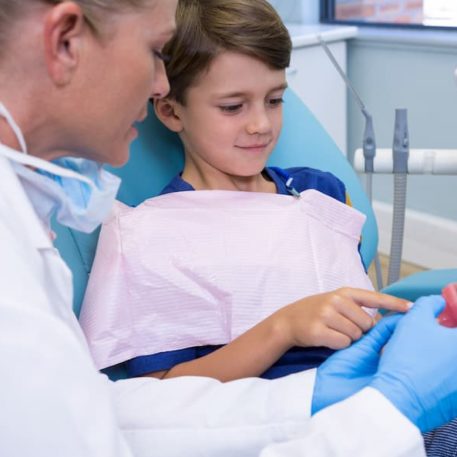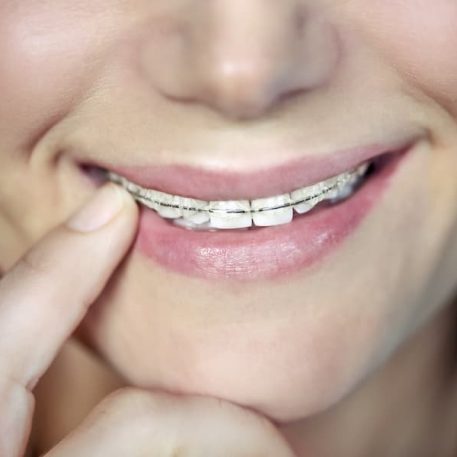Why Choose A Jacksonville Pediatric Dentist? 9 Important Reasons.
A pediatric dentist is an important professional in your child’s life since he/she provides oral care strictly to infants and children through adolescence, including those with special health needs. To acquire this knowledge, a pediatric dentist has to attend a 2- to 3-year specialty dental educational program focusing on pediatric dental training after completing a 4-year dental school.
Here Are 9 Reasons Why You Should Choose a Pediatric Dentist
1. Child-Friendly Equipment
While there aren’t any inherent issues associated with the use of standard dental equipment on children, but the best pediatric dentists in Jacksonville will prefer using smaller equipment designed specifically with children in mind. Child-friendly dentistry equipment can help ease your child’s anxiety while receiving dental care by reducing the discomfort usually caused by disproportionate equipment.
2. Specialized Education and Training
Pediatric dentists are primary and specialty oral care providers for infants and children through adolescence. Pediatric dentists usually have 2 or 3 years of specialty training after dental school to prepare them to meet the unique needs of children. The training empowers pediatric dentists to address the unique complexities of developing teeth as well as treating any potential issues when they emerge.
3. Experience Working with Children
Pediatric dentists have extensive experience working with young patients. They are fully equipped and trained to communicate with children of different ages, handle their emotions, as well as ease any anxiety or fear. Pediatric dentists are also experienced in treating children that have specific healthcare needs.
4. Ensures Your Child’s Comfort
It is critical that your child feels comfortable in the dentist’s office. A pediatric dentist’s office provides the distraction during the dental visit to ensure that your child has a positive experience. The office is also decorated in a fun and child-friendly manner that’s not very overwhelming to ensure that your child has a fun experience and actually looks forward to future visits.
5. Teaching Proper Brushing and Flossing Techniques
Parents can teach their children proper brushing and flossing techniques at home, but visiting the pediatric dentist allows for additional, needs-specific instruction. Children along with their parents receive age-specific tips for choosing as well as using the right tools for oral care. Pediatric dentists also provide resources that show children areas of missed plaque to help them adjust their self-care accordingly.
6. Checking for Proper Tooth Development
The pediatric dentist checks to ensure that teeth are erupting and developing properly right from the very first child’s office visit. In case there are any developmental problems to be addressed, early correction can limit their impact on the appearance and integrity of the smile. Furthermore, checking for signs of developing cavities can help pediatric dentists identify nutritional issues likely to be affecting a child’s oral and overall health.
7. Early Referrals
Besides ensuring that teeth are emerging and developing properly, pediatric dentists can also inspect the child’s bite alignment. Problems caused by mouth breathing, thumb sucking, under-bites, over-bites, and congenital defects can be identified early on by a pediatric dentist.
8. Habit Counseling
Habits such as thumb sucking and teeth grinding are particularly common in youngsters. It is usually very hard to get a child to break such habits. A pediatric dentist can help address the problem. He/she will have a sit-down with the child to teach him/her about how such habits are harmful to teeth. The dentist will then aid your child to stop the habit.
9. Adopting Lasting Oral Hygiene Habits
Adopting positive habits takes time and effort and helping your child/children do it is a critical aspect of being a parent. You can work with your pediatric dentist to help teach your child how to take proper care of their teeth from a very tender age. Doing this will improve your child’s chances of keeping the habits throughout his/her life and maintain healthy teeth, gums, and tongue in the process.
Final Thoughts
A pediatric dentist provides truly invaluable services to children as well as their parents as clearly shown here. Pediatric dental treatments can be as simple as cleanings or as complex as extractions and root canals, but it is impossible to know the full extent of your child’s dental problems if you don’t take them for regular appointments. Do not let your child’s teeth to go uncared for by taking them to the pediatric dentist regularly.


